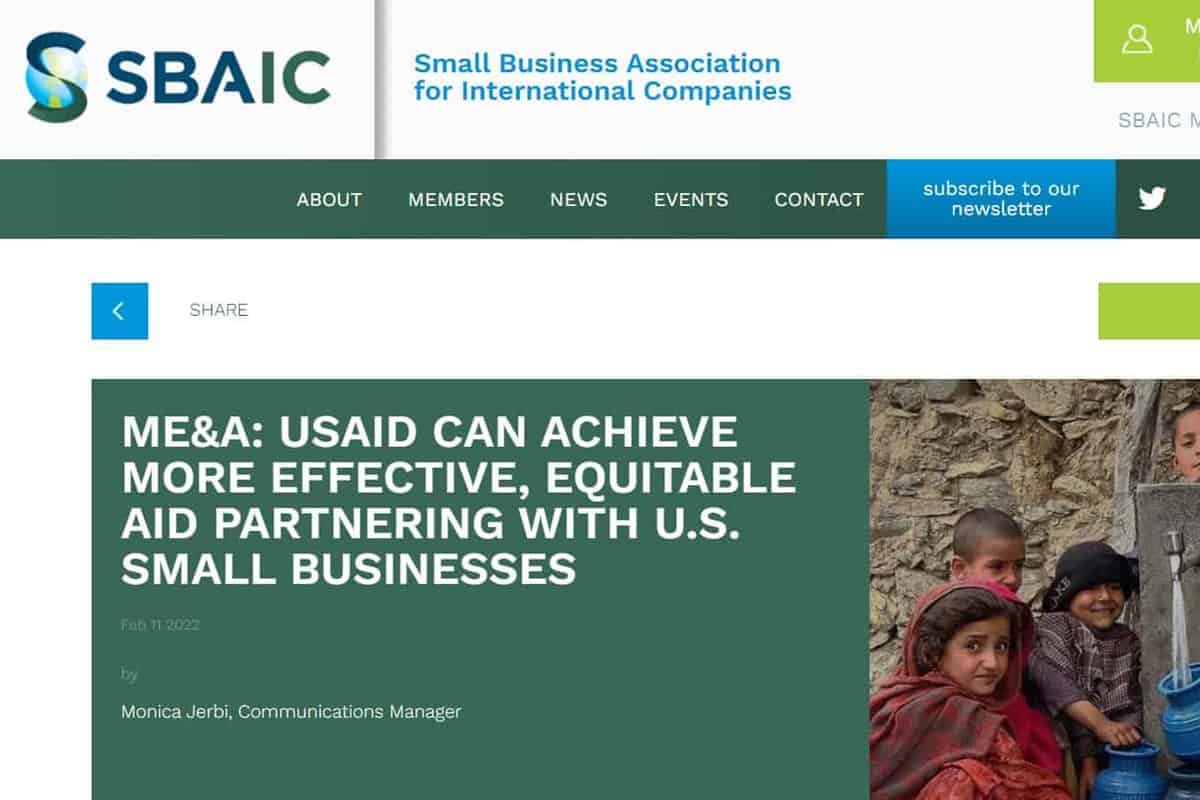
SBAIC Newsletter Highlights ME&A’s History Partnering with USAID on Locally Led Development
ME&A’s long history partnering with USAID on locally led development was recently featured in the Small Business Association for International Companies (SBAIC) newsletter and website.
The article uses examples of ME&A’s localization work to explain how USAID can partner with U.S. small businesses to deliver effective, equitable aid that empowers and listens to local voices. The article leads with a quote from Loren Schulze, Ph.D., an ME&A vice president serving as a senior advisor on water, food security, agriculture, climate change, and environmental issues.
“At first glance it might appear as if USAID’s 12.5 percent prime small business goal and 16 percent small business subcontracting goal collide with USAID’s new Local Capacity Development goals of 25 percent funding to local organizations and 50 percent funding including local voices,” Dr. Schulze said. “The reality is the nimble, innovative, and diversity oriented corporate cultures of small businesses like ME&A have prioritized equitable, locally led development for years. It is nothing new for us to mentor local institutions in overcoming challenges to maintaining compliance with U.S. contracting requirements; offsetting the impact of political, social, and economic upheaval on capacity development objectives; or seeking full inclusion of ethnic or religious minorities and listening to their voices.”
After providing details on ME&A’s localization work in Armenia, Georgia, and Tajikistan over the past decade, it ends with a quote from USAID Administrator Samantha Power.
“We cannot leave it up to the experts and the diplomats…. We must offer people, not a vision merely of international development but a vision of inclusive development.”
USAID Administrator Samantha Power
SBAIC is a membership organization established to promote utilization of small businesses at U.S. government agencies providing foreign assistance. Its recent newsletter featured articles on a dozen small businesses and their work leading locally led development per USAID’s new Local Capacity Development (LCD) policy.
“We chose this topic out of concern to ensure that a focus on ‘localization’ does not mean there is no longer a need for support from U.S. small businesses,” Anita Campion, SBAIC Executive Committee Chair, wrote at the beginning of the newsletter. “In fact, this newsletter shows the many ways in which we are the ideal partners for local firms, as they tend to be closer in size to our member businesses, and we appreciate their range of issues and how to manage growing pains.”
SBAIC is a membership organization established to promote the meaningful utilization of U.S. small businesses at U.S. government agencies providing foreign assistance, such USAID; the Millennium Challenge Corporation; Overseas Private Investment Corporation; and the U.S. Departments of State, Defense, Health and Human Services, and Agriculture.


